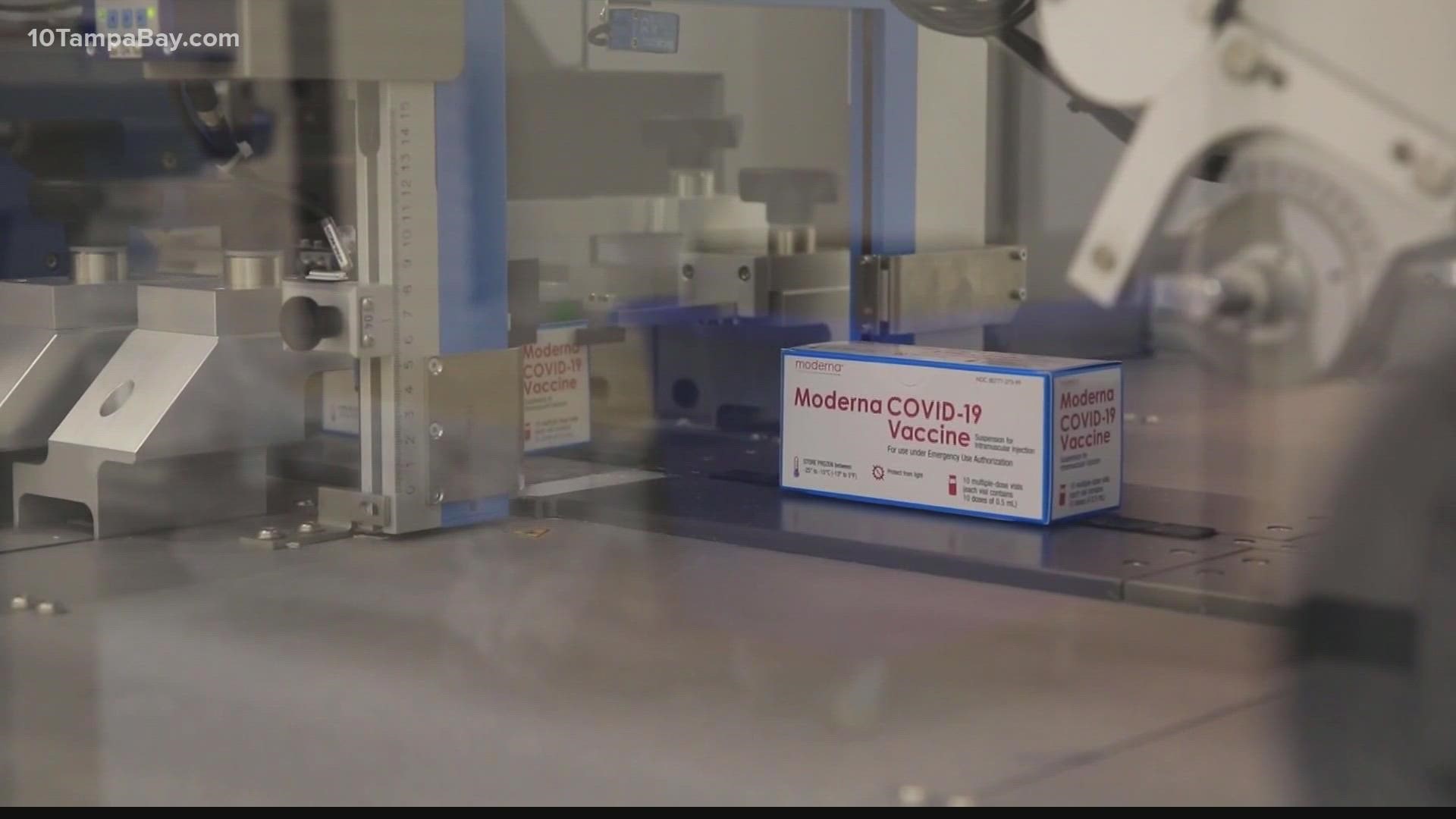Editors note: The photo above is a file photo from a previous date.
Wednesday, public health and medical experts from the U.S. Department of Health and Human Services released a plan for a third vaccine shot against COVID-19 for Americans.
The plan calls for an extra dose eight months after people get their second shot of the Moderna or Pfizer vaccine, as outlined by the Center for Disease Control and Prevention. This means the shots could begin for everyone the week of Sept. 20.
People who are moderately to severely immunocompromised and vulnerable to the coronavirus are who doctors are focused on getting a COVID-19 "booster" shot, according to the CDC.
So, who needs an additional COVID-19 vaccine?
According to the CDC, people who have:
- Been receiving active cancer treatment for tumors or cancers of the blood
- Received an organ transplant and are taking medicine to suppress the immune system
- Received a stem cell transplant within the last two years or are taking medicine to suppress the immune system
- Moderate or severe primary immunodeficiency (such as DiGeorge syndrome, Wiskott-Aldrich syndrome)
- Advanced or untreated HIV infection
- Active treatment with high-dose corticosteroids or other drugs that may suppress your immune response
Those who are eligible should talk to their healthcare provider about their medical condition and whether getting an additional dose is appropriate for them, the CDC says.
According to a study by the CDC, some immunocompromised people don’t always build the same level of immunity after vaccination the way non-immunocompromised people do. Experts believe people who are immunocompromised may benefit from an additional dose to ensure adequate protection against COVID-19.
At this time, health experts are not recommending additional doses or booster shots for non-immunocompromised people.

